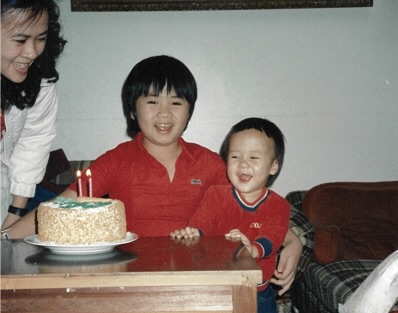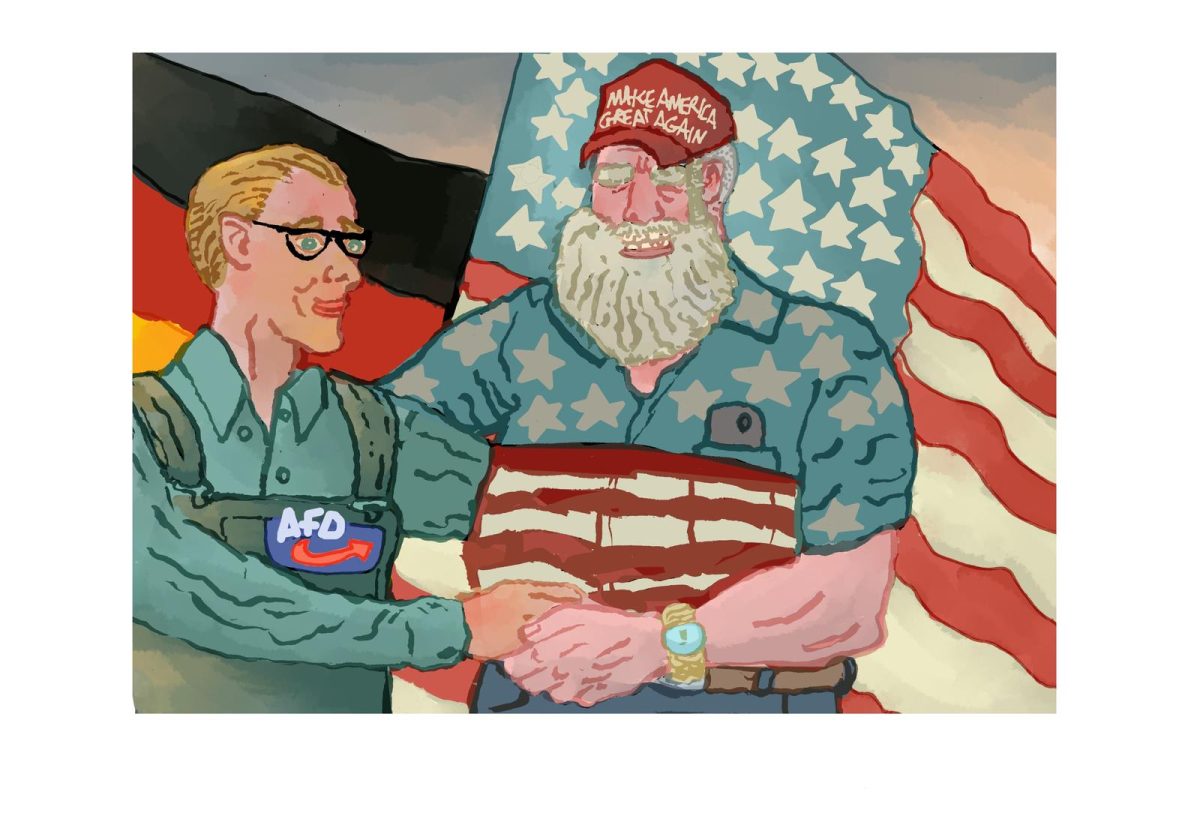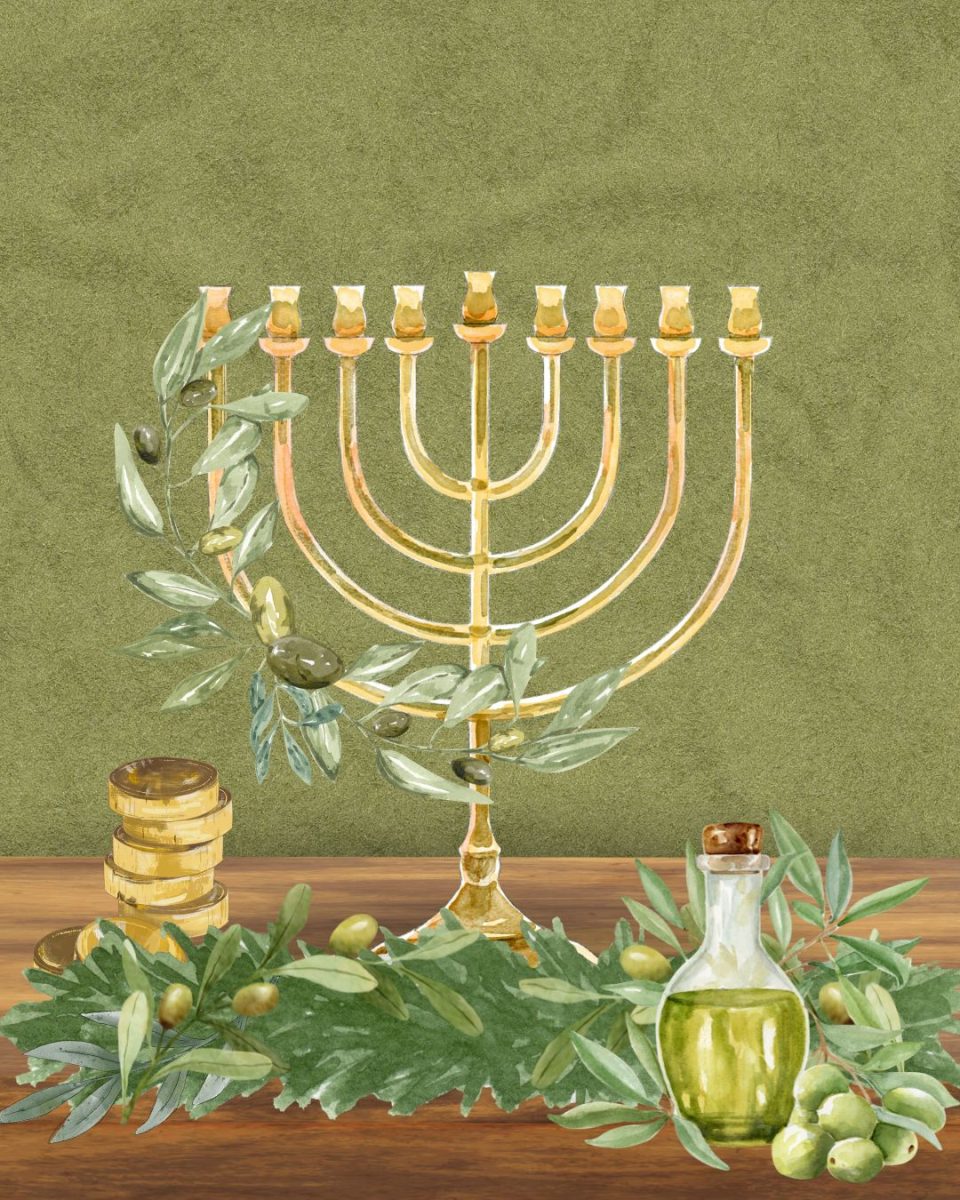Grief is somehow both the default setting and a sentiment fiercely dodged, pitched from family member to family member like a hot potato. We’re all violently allergic to grief, going to impressive lengths to avoid it and punt onto the next reluctant mourner. It is only the pastime of import at any of my family gatherings.
My older brother, Bruce, had been estranged from our family for the most of twenty years, fleeing not just our home but the entire state, absconding across the country to Tennessee. He put all the trauma of his youth in the rearview mirror. He fled a repressive communist country as a refugee when he was seven, only to make another urgent exodus from a stifling homestead at the age of 18– a real cut-and-run situation that resulted in a significant fraternal chasm during my own upbringing.
In Vietnamese culture, grief has clear parameters, with well-established pomp and ceremony. White is the color of mourning, worn leading up to and after the funeral. Incense is lit and offerings are stacked at the altar commemorating the departed. All very reverent and by the book.
But is there a “wrong” way to express anguish over a loss? My parents immigrated to Southern California in the 1980s and I was born soon after. While I was surrounded by the traditional trappings of a Vietnamese immigrant childhood, it would be remiss to concede I wasn’t firmly Americanized from the beginning. I grew up under the decadent umbra of Nintendo, Cheerios and Hanna-Barbera fare that were perhaps unfamiliar to my recently arrived refugee older siblings. This has led me to find myself wedged between that liminal space, uncertain how to properly grieve the premature passing of my brother, who bore a stark cultural contrast to myself.
In my adolescence, my elder brother loomed large, instilled into me a near-fanatical devotion to books and learning. He subjected me to military-like exercises; looking up words in the dictionary with haste as he stood over the desk holding a timer; inspecting my homework with cultish precision. Academic excellence was the order of the day and blood, sweat, toil and tears were our daily bread. To this day, in my daily work as a librarian, I can still see him, stern-eyed and standing sentinel in the margins and spaces between the words of every dictionary I open.
Receiving the news that he had abruptly suffered a heart attack in his mid-40s was devastating. At that point, our relationship was spotty and our interactions were infrequent and usually stilted— though not devoid of affection. Our respective roads just forked sharply throughout the years and the lines of communication trickled to that sporadic perfunctory text around the holidays. Our relationship was never what one would describe as the picture of comity before that gradual splinter, but rather as a checkered affiliation fraught with friction, detachment and rueful resignation.
So it goes. His absence in our lives meant that I didn’t know what his life was like across the country. I was aware he smoked like a chimney. The bygone embers heaped to bewildering heights and spilling out of ashtrays was a constant memory I’ve managed to cleave to. And perhaps he drank too much and let work stress him more than perhaps recommendable. These variables would contribute to the grave statistic that cardiovascular disease is the second leading cause of death for the Vietnamese population here in the United States. A tinsel of datum that I learned all but too late and after my brother’s funeral.
I still find myself at a crossroad as to how to lament. There is no manual in which I can speed-browse and zero in on the correct definition under his watchful weather eye. Even amongst the remaining family, we’ve yet to have a heartfelt conversation and process together his untimely death. Vietnamese superstition and lore is big on ghosts. And I wonder what of his? Would he make his presence known to his familial survivors here in Southern California? Or along the long lost native country shores of the Thu Bon River from whence he entered this existence? Or the adopted latter home state of Tennessee where he eventually made ultimate existential corporeal egress? Where will he choose to haunt beyond just my daily thoughts and regretful ruminations?
Will a brotherly specter read this dirge? Do spirits have internet access and can ectoplasm conflux with wayward wi-fi signals? Perhaps the most gratifying mode of grief is the one that should have been expressed preemptively while he was still here.












